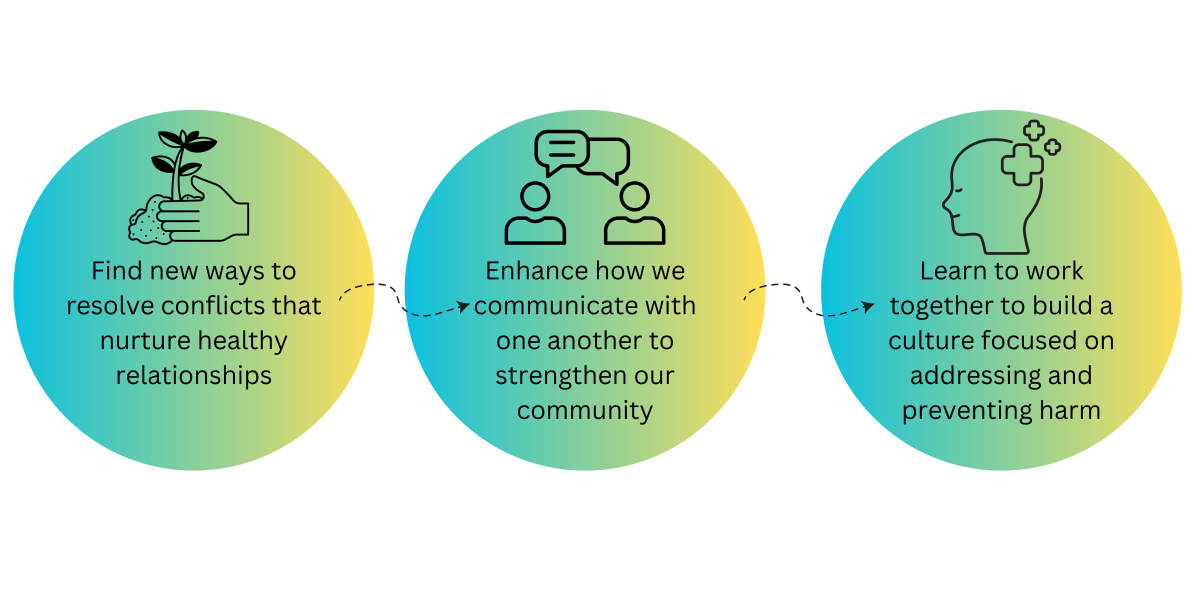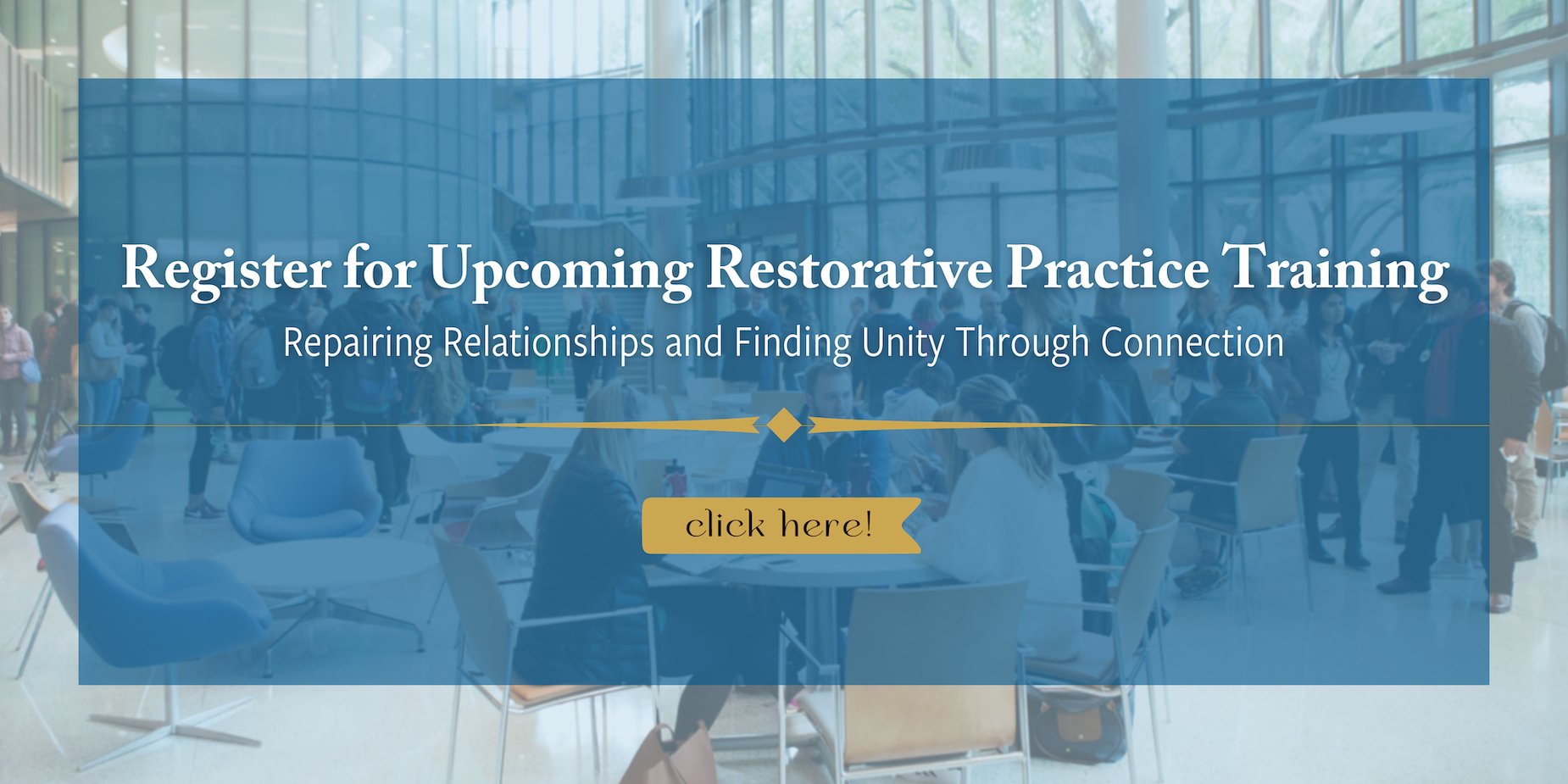Our work is grounded in restorative practices and serves the university through various options adaptable to the unique needs of Tulane community members, which are best served outside the traditional processes for addressing conflict and relational problems.
Improving Relationships and Resolving Conflict
Restorative practices encompass a range of tools and processes aimed at fostering, encouraging, and repairing relationships. In essence, they provide a framework for cooperation, improved communication, taking responsibility, and resolving conflicts in a way that benefits the entire community.
The primary goal of restorative practices is to develop a strong sense of community while effectively managing conflict and tensions. This interdisciplinary field, which draws its inspiration from the restorative justice philosophy, recognizes the fundamental significance of relationships in fostering learning, growth, and a healthy community.
Discover What You'll Gain from Our Training
Immerse yourself in transformative learning opportunities run by the renowned professionals at the Center for Restorative Approaches (CRA). Our highly trained facilitators are dedicated to equipping you with the knowledge and skills to build a strong community, foster inclusivity, and facilitate collaborative decision-making.
During our trainings, you will:
Restorative Practices Dialogue Model
Ten Principles for Living Restoratively
We present ten guiding principles for adopting a restorative way of life in honor of Howard Zehr, frequently referred to as "the grandfather of restorative justice" and the founder of the Zehr Institute for Restorative Justice:
- Recognize the profound interconnectedness of all beings, including people, institutions, and the environment, and honor the inherent value of these relationships.
- Cultivate awareness of the potential impact, both positive and negative, that your actions may have on others and the environment.
- Even if it means facing uncomfortable truths and making an effort to make things better, acknowledge and take responsibility for any harm your actions may have caused.
- Treat everyone with respect, regardless of your expectations or judgments, including those who may have harmed or offended you or others.
- Strive to involve those affected by a decision in the decision-making process, recognizing the importance of their perspectives and experiences.
- View conflicts and harms as opportunities for growth, learning, and transformative change.
- Engage in deep and compassionate listening, seeking to understand others even when you disagree, and valuing empathy and connection over being right.
- Courageously engage in dialogue with others, even in challenging circumstances, remaining open to learning from their perspectives and the shared experience.
- Be mindful about imposing your own "truths" and views on others, respecting diverse perspectives, and promoting dialogue and understanding.
- Sensitively confront everyday injustices including sexism, racism, homophobia, ableism, xenophobia, antisemitism, Islamophobia, and classism, taking a stand against systemic biases and advocating for equality and justice.
How restorative are you? Take the Quiz Now.
Questions? Please contact the Office of Institutional Equity at restorativepractices@tulane.edu for more info.
Additional Information
This 1-hour learning community session is for individuals who have previously taken the Center for Restorative Approaches' Introduction to Restorative Approaches training. In this session, we will provide a brief refresher on restorative practices and discuss ways in which you have been able to use restorative practices since the training. We will also practice your restorative skills in different scenarios. Click on the links below to register.
Upcoming Sessions:
Please join Tulane’s Office of Human Resources & Institutional Equity for a training facilitated by the Center for Restorative Approaches on April 15 and 16 at TNPRC! This 16-hour training is designed to introduce the restorative approach and offer practical skills to build community, foster inclusion, and promote collaborative decision-making. Restorative practices are tools and practices to help build community, enhance empathy, and to resolve conflicts. The Center for Restorative Approaches has been applying these practices in the Greater New Orleans area since 2008, and has trained over 6,000 people at schools, organizations, and community centers.
Instead of focusing on blame and doing things “to” people, restorative approaches work “with” people to build problem-solving skills that result in better connections and a healthier community.
In this training, you will:
- Learn the guiding principles for restorative approaches.
- Learn how to design and facilitate a community building circle.
- Practice using relationship-driven communication processes.
- Learn processes for restorative accountability- specifically how to facilitate restorative conversations.
Certificate of completion will be provided. Lunch provided both days.
Register here.

